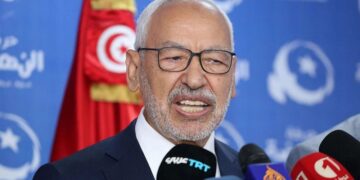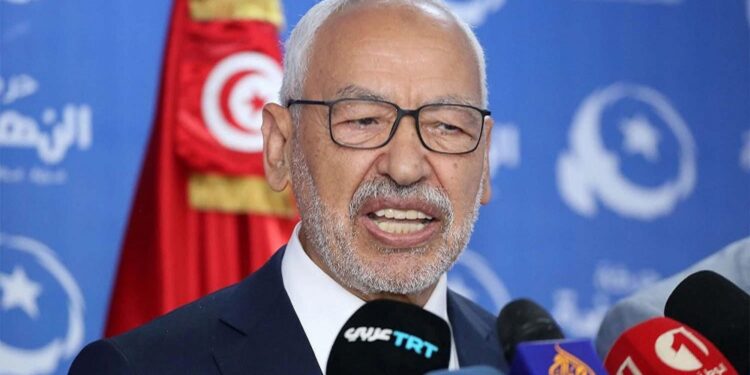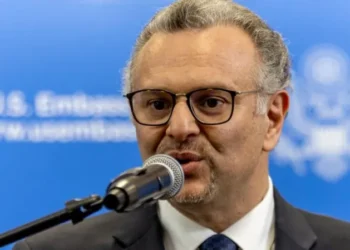Tunisian opposition leader Rached Ghannouchi, a vocal critic of President Kais Saied, has been sentenced to a year in prison by a Tunisian Judge on charges of incitement, his lawyer Monia Bouali disclosed.
The charges against Ghannouchi, 81, are related to a funeral eulogy he delivered last year for a member of his Ennahda party. During the eulogy, Ghannouchi remarked that the deceased “did not fear a ruler or tyrant, he only feared God.”
Ghannouchi, who has been in prison since April, is also accused of plotting against state security alongside other detained opposition figures, who accuse President Saied of orchestrating a coup by dissolving the elected parliament and assuming ruling power through decrees.
President Saied, who solidified his expanded powers through a referendum with a low turnout last year, vehemently denies that his actions constitute a coup and argues that they are necessary to rescue Tunisia from years of turmoil.
Labelling his critics as criminals, traitors, and terrorists, Saied has warned that any judge who releases them would be seen as aiding their cause.
Ghannouchi has chosen not to appear before the judges, asserting that the charges against him are fabricated and that the trial itself is politically motivated, as stated by his lawyer.
Bouali further criticized the ongoing trials, characterizing them as an attempt to suppress opposition leaders through the exploitation of the judiciary, given the inability to defeat them politically.
Before the democratic revolution in 2011, Ghannouchi endured imprisonment and lived in exile. He served as the parliament speaker following the 2019 election until President Saied deployed tanks to close down the chamber in 2021.
Recent actions by Tunisian authorities have intensified the crackdown on opposition voices. Last month, all Ennahda offices were banned from hosting gatherings, and the headquarters of the Salvation Front, the primary opposition coalition, was forcibly closed by the police, leading human rights groups to denounce these measures as a de facto ban.
While the Tunisian authorities have refrained from commenting on the decision, President Saied maintains that “no one is above the law” and reiterates his unwavering commitment to hold accountable those who have committed crimes against the nation.



































